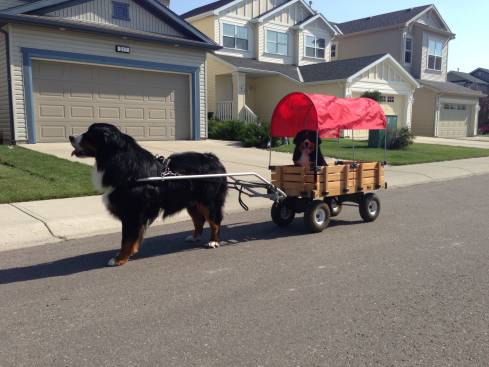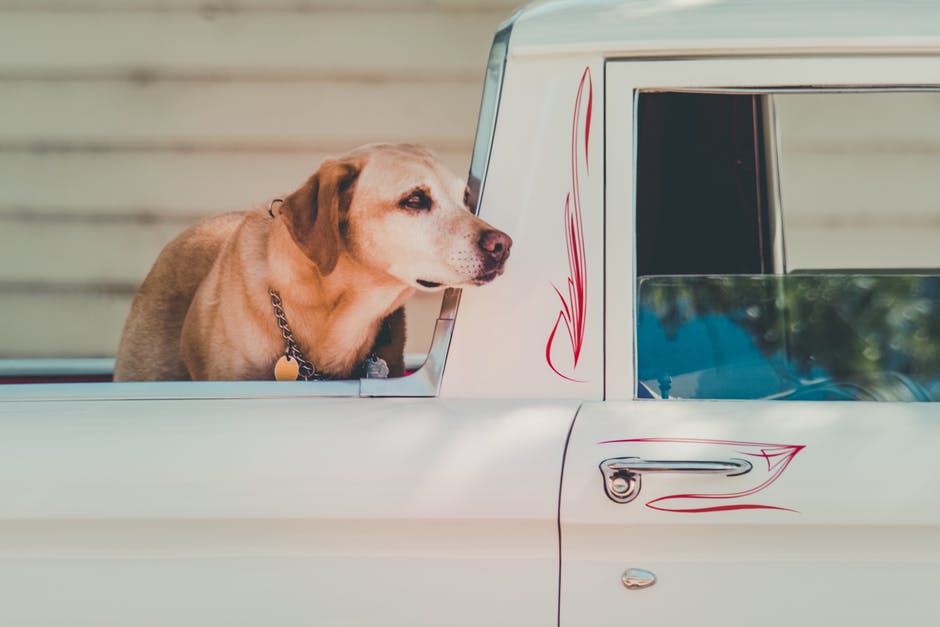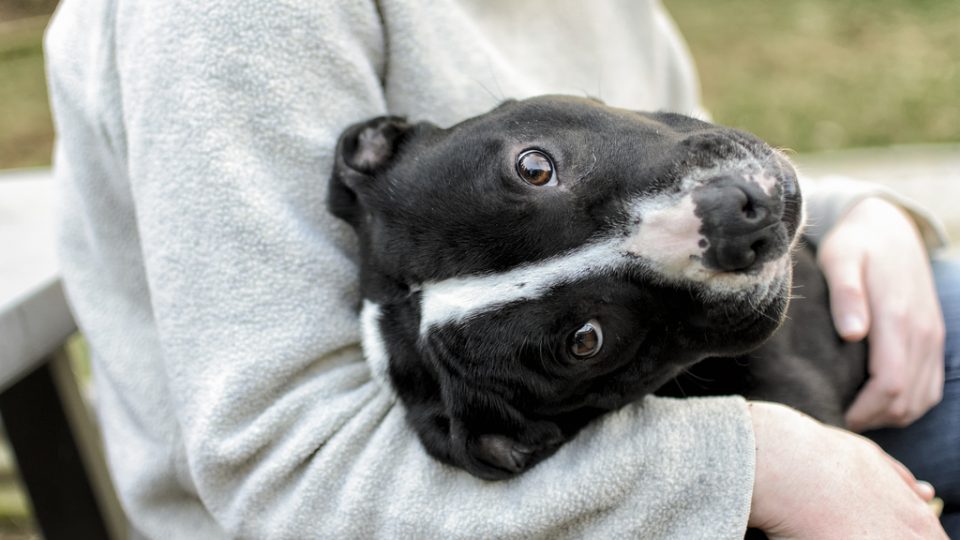Are you the proud parent of a new, cute, adorable puppy? Major congratulations! Having a puppy in your life will bring such joy! Think of all the things you can do together—spend time cuddling, play fetch, go for walks, etc. That last one can be so much fun…except for when your new pup picks up something disgusting on the ground, like poop and eats it. Yes, you just read that correctly! Your puppy may be a poop eater! How revolting to learn that your puppy may eat poop!
Connect with a verified veterinarian in minutes. Licensed vets are available 24/7 to answer your questions. No need to worry about your furry family member.
Now you’re completely grossed out and your puppy doesn’t look so sweet and adorable. It’s OK to feel sick at the sight of your pup eating pooh. It’s sickening to think of your pup washing your face or giving you a kiss after eating one of these disgusting treats—we understand; but you need to realize this is a normal habit for some puppies and even adult dogs.
Why Does My Puppy Eat Poop?
This normal action of a puppy eating poop has a name—it’s called coprophagia—and is usually a behavioral issue, though it can be caused by medical conditions, too. We’re going to take a look at behaviors that cause some puppies and dogs to eat feces, and then we’ll look at medical issues that can cause your dog to crave these dainty morsels. Just why is my puppy eating own poop? We’ll answer that one, too!
Natural Behaviors for Puppies Eating Poop
Eating poop is a very natural behavior for some dogs. Yes—it’s true! Here are some reasons puppies and dogs eat their own and other animals’ feces:
- Mothers eat puppies’ poop: a mother dog will eat her puppies’ poop to keep their den or bedding area clean. She does this not only to keep the puppies and herself clean, but to keep the area clean. Predators can be attracted by the smell of feces and may try to attack the mother and her puppies.
- Puppies eating their own feces: when they’re still with their mother, puppies learn all about how to be a dog, which includes eating poop. The puppies may see their mother eating poop and pick up this trait from her. This is quite natural and it’s all part of being a dog. This is a case of monkey see, monkey doo-doo—sorry for the pun—it’s intended!
- Exploring: puppies may eat poop as they learn to explore their new world. Their curiosity leads them to mouth, chew and eat things as a way of learning about and exploring their environment. Most puppies tend to grow out of this phase by the time they become adults.
- Scavenging: dogs are natural scavengers and may be drawn to pooh that smells appealing. Yes—you read that correctly. Puppies and dogs can be attracted by the smell of poo—be it their own or poop that belongs to other animals. Yuck—but it’s true! Not your everyday favorite snack, but it could be a delicacy to your fur baby!
- Boredom: yes, your fur baby could just be bored. Puppies or dogs left alone most of the day and kept in a small area (such as a crate or kennel) may turn to eating their poop as way to relieve their loneliness and boredom.
- Seeking attention: some puppies and adult dogs will try anything to gain your attention. They’ll even try doing things that bring punishment—just to get your attention. Your puppy might pick up some poo outside and then you start chasing him and hollering—well, your puppy likes the attention and the reward is getting that attention—and seeing you chasing him all around the yard!
- Avoiding punishment: puppies may eat their own poo to avoid getting punished for going in the house, etc.
These are some of the most common reasons a puppy might eat its own poop. Yes, it’s gross, but poo-eating is a quite natural behavior for your sweet little fur baby!
Medical Reasons for my Puppy Eating Poop
While this behavior is quite normal, there are some medical conditions that may cause a puppy or an adult dog to eat their own and other animals’ feces.
1). Poor digestion or malabsorption: puppies and dogs sometimes have a problem digesting their food and/or absorbing the nutrients from their chow. When this happens, your puppy or dog’s feces come out looking almost like when they went in—depending on the type of diet (dry, wet, homemade, etc.). In this case, the puppy or adult dog will eat their own poop to get the nutrients that were missed the first time around. Poor digestion or malabsorption may also cause your pup to eat the poop of other animals.
2). Worms & parasites: intestinal parasites and/or worms take the nutrients you puppy or dog are eating, so your fur baby ends up feeling hungry all the time. He will then seek something more to eat to satisfy his hunger.
3). Hunger: if a puppy (or adult dog) isn’t getting enough to eat, they may be hungry all the time and turn to eating feces—again, to satisfy their hunger.
4). Stress: any type of stress, such as coming to a new home or a major change in the family, etc. may cause your pup to feel stressed. He then may take up the habit of eating feces—his own or the feces from other animals.
Puppies & Your Cat’s Litterbox
Puppies and dogs are often attracted to your cat’s litterbox, much to your cat’s dismay. There’s just something enticing about cat feces they may not be able to resist. However, it will be necessary to break your pup of this habit. It could make him sick.
Just as with other types of feces, a cat’s poo can be full of bacteria and parasites that can make a puppy or adult dog ill. Some infections carried in cat’s poop can also make you and your family ill, including salmonella.
Another issue is the cat litter, which can cause digestive and other issues if your dog eats enough of it. Cat litter, especially the clumping kind, can create an intestinal blockage, which is a very dangerous medical problem. If you notice your pup has suddenly become constipated and/or shows signs of digestive distress (bloating, sore when touched on his abdomen, vomiting), then take him to the vet as soon as possible—this could be a medical emergency—all from eating cat litter and cat pooh.
In addition, your cat may become very upset at the dog rummaging in her sandbox for treats! Some cats may even avoid using their litter box, just to keep the dog away from their poop. Then your canine fur baby can go poop hunting all over the house! Not a good situation for you and your family.
To keep your dog from eating the cat’s poo, consider putting the litter box where the dog can’t get it. This may mean the kitty box is placed on a table or other high spot where the dog can’t reach. Another thing you can do is purchase a self-cleaning litter box, which sweeps all waste away once the cat leaves the box. A covered litter box can also be helpful, but if your dog’s determined to get all those tasty cat feces, he may figure out a way in.
One more option may be to invest in a kiddie or puppy gate, which fits in the doorway and keeps the puppy from getting at the cat’s litter box.
How to Stop Your Pup from Poop Eating
Here are some tips to help stop your puppy or dog from eating their own and other animals’ feces.
- Choose high-quality, nutritious dog and puppy food: this way you’ll make sure your puppy or dog get all the nutrients they need with each feeding. Also, be sure to feed him the right amount. Don’t forget puppies are growing fast, so they may require more than one or two feedings a day. Some puppies require 3 meals per day to get their nutritional requirements met.
- Relieve boredom: be sure to spend a lot of time with your puppy or dog. This way he’ll get your attention and exercise each day. This may keep him from being becoming bored and relieving his boredom by eating his poop.
- Keep things clean: be sure to keep your home and yard clean by picking up your fur baby’s pooh. This way, he won’t have as many opportunities to eat those yummy nuggets of poop.
- Leashes for walks: keep your puppy or dog on the leash when out for a walk. You’ll be able to keep your canine companion from picking up little delicacies as you walk. Not only that, but you’ll be protecting his health, too. Poo can be infected with worms, parasites and bacteria that can make your puppy sick. If your pup wants to sniff at some poo, gently pull him away and try to offer some distraction so he won’t have a chance to eat it.
- Watch for signs of illness: if your fur baby is regularly seeking poo to eat, this is normal. However, he could be sick, so watch for other signs and symptoms of illness including diarrhea, losing weight (or not gaining weight), watery stools, vomiting, etc. If you see your pup is experiencing these and other symptoms (along with eating feces), then it’s time to get him to the vet.
Avoiding Punishment If Your Puppy Eating Poop
Punishing your puppy or dog for eating poop rarely works. For one thing, the negative behavior can be a cry for attention. Your fur baby wants attention of any kind, even negative attention. Punishing him can be that reward, even if it doesn’t make him happy. Never “stick his nose in it.” This is an old way of punishing a dog for eliminating in the wrong place or for eating their pooh. This rarely works and may make your puppy eat feces even more. He will be very unhappy and eat his poo just to avoid being punished. Even worse, he could become so stressed that he develops constipation. So, avoid punishing for this behavior.
Rather than using punishment to curb this gross habit, try distraction and rewards when he drops the poo or comes away from poop. Dogs respond very well to positive reinforcement. Your fur baby wants to make you happy and will enjoy the reward of a tasty treat and petting, rather than being scolded and punished.
Poop eating is a normal, natural behavior in puppies and dogs—a habit that’s gross to us, but may be a yummy snack for your pup! If you suspect your pup may be ill, be sure to take him to the vet as soon as possible. Treatment could cure this poo-eating habit. Otherwise, your puppy will probably grow out of it on his own. Just give him lots of love and attention—you’ll both survive this gross phase—we promise
Connect with a verified veterinarian in minutes. Licensed vets are available 24/7 to answer your questions. No need to worry about your furry family member.

Julie
Julie is a graduate of the University of North Carolina, Wilmington, where she studied Animal science. Though contrary to the opinion of her parents she was meant to study pharmacy, but she was in love with animals especially cats. Julie currently works in an animal research institute (NGO) in California and loves spending quality time with her little cat. She has the passion for making research about animals, how they survive, their way of life among others and publishes it. Julie is also happily married with two kids.
Review symptoms, medications & behavior to keep your pets healthy with a Vet Online in just minutes.
Ask a Vet Live Now



